
The AIgorythm project

Playwright and actor
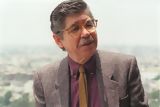
Novelist

Writer and poet

Volleyball player

Italian-Peruvian naturalist and geographer

Singer and percussionist

Last Inca emperor

Politician, former prime Minister

Journalist and TV host
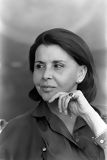
Poet

Inca warrior

Actor and comedian

Biophysicist

Poet

Doctor and researcher

Businessman, Interbank group

Journalist and writer
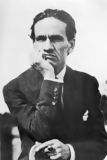
Poet and writer

Singer and songwriter
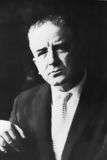
Writer

Film director, Berlin Golden Bear winner

Football player

Writer and journalist
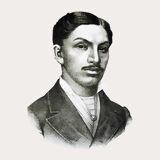
Doctor and scientist

Photograph

Chess player

Industrialist
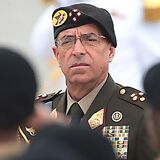
Former general

Specialist in public health

Actress and singer

Afro-Peruvian music singer

Mathematician and engineer

Indigenous chronicler

Neurologist and anthropologist

Painter

Football player
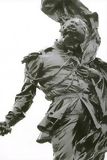
National hero, military leader

Intellectual and reformer

Chef and entrepreneur

Fashion designer

Singer-songwriter

TV presenter

Marathon runner

Indigenous Peruvian chronicler

Theologian

Former national team captain

Economist and former health minister

Inca princess

Writer and television host

Folk musician

Poet and guerrilla
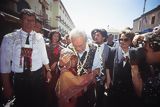
Former UN secretary-general

Chef, known for fusion cuisine

Football player

Peruvian aviation pioneer

Poet and artist
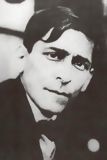
Marxist philosopher and writer

Industrialist and businessman
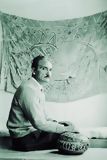
Novelist and ethnologist

Painter and muralist

Opera tenor

Fashion designer

Cardinal of Lima

Peruvian tennis player

Football coach

Leader of the indigenous rebellion
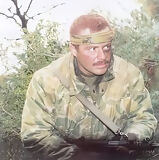
Military hero

Latin singer
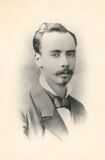
War of the Pacific hero

The youngest mother in history

Politician
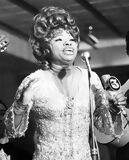
Creole music singer

Tennis player

Musician

Writer and politician

Politician and founder of the Christian Democratic Party

Founder of Sodalitium Christianae Vitae

Archaeologist and anthropologist
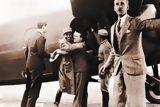
Military leader and politician

Television host

Actress and singer

Contemporary sculptor

Women’s rights activist

Beauty queen

Astrophysicist

Heroine of independence

Mathematician and archaeologist

Historian and anthropologist
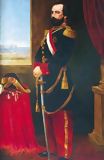
Military figure and historical figure

Fashion photographer
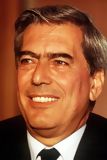
Writer, Nobel Prize in Literature, Politician

Revolutionary leader

Environmental activist

Leader of the indigenous rebellion

Musician from Gaia band
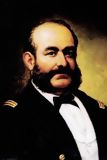
War hero
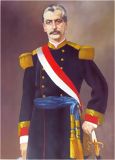
Military leader and politician

Chef, known for Nikkei cuisine

Volleyball coach and former player

Environmental activist

Television personality

Writer

Football player

Epidemiologist and former health Minister

Inventor and aerospace pioneer

Soldier and inventor

Rock singer

Chef and co-owner of Central restaurant

Painter

Football player

TV presenter and actress
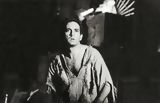
Actor
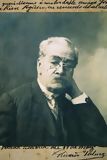
Writer and historian

Journalist and lawyer

Archaeologist, founder of Caral site
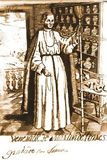
Monk and Saint
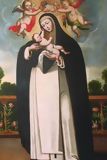
Saint, patron of Latin America

Physicist and engineer

World champion surfer

Actress

Oncologist

Singer, Latin Grammy winner

Former mayor of Lima

Singer

Actress

Former football player

Painter
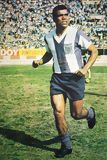
Former football player

Painter

Inca leader

Archbishop, saint
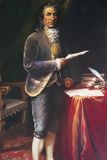
Leader of the indigenous rebellion

Revolutionary indigenous leader

Diplomat and intellectual

Sculptor and painter
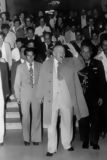
Political leader, founder of APRA

Lawyer and Former prime minister

Chef of Central restaurant

Former head of secret services

Popular singer

Fashion designer

Exotic music singer
Francisco Bolognesi is one of the most iconic figures in Peruvian military history. Born on November 4, 1816, in Lima, he is best known for his heroic role in the Battle of Arica during the War of the Pacific, which pitted Peru and Bolivia against Chile from 1879 to 1884. His unwavering commitment to defending his country and his sense of honor have made him a national symbol of courage and sacrifice, ultimately being recognized as a national hero of Peru.
Francisco Bolognesi Cervantes was born into a modest family in Lima. From a young age, he displayed an interest in military life, though he initially worked in commerce. However, his true calling was in military service, which he joined in 1834, entering the Peruvian army. Throughout his career, Bolognesi participated in several civil wars and internal conflicts in Peru, where he quickly gained a reputation as a brave and loyal officer, steadily rising through the ranks.
The most significant moment in Francisco Bolognesi's career came during the War of the Pacific. In this conflict, Peru and Bolivia faced Chile over control of valuable territories rich in natural resources, such as nitrate deposits. In June 1880, Bolognesi was appointed commander of the defense of the port of Arica, a crucial city in the war.
Despite the unfavorable situation for the Peruvian forces, who were vastly outnumbered by the Chilean army, Bolognesi remained resolute. In a famous declaration, he told his men: "I have sacred duties to fulfill, and I will fulfill them until I burn the last cartridge." This phrase became a symbol of his determination and patriotism. On June 7, 1880, the Chilean forces launched a decisive attack on Arica. Bolognesi and his soldiers fought valiantly but were ultimately overwhelmed, and Bolognesi died on the battlefield, becoming a martyr for the Peruvian cause.
Francisco Bolognesi's sacrifice, along with that of his men at Arica, left a profound impact on Peru's national consciousness. His refusal to surrender, even in impossible circumstances, and his determination to fight until the end made him a symbol of military honor and patriotism. Bolognesi is remembered as an example of loyalty and ultimate sacrifice for the homeland, and every June 7, Peru commemorates "The Day of the Battle of Arica" in his honor.
Following his death, Francisco Bolognesi was officially declared a national hero of Peru. His legacy has been immortalized in numerous monuments, statues, and public works throughout the country. Additionally, his image appears on Peruvian postage stamps, banknotes, and coins, serving as a constant reminder of his heroism.
Bolognesi’s legacy transcends his death in the War of the Pacific. He is considered an example of moral integrity, bravery, and patriotism, not only for the military but for all Peruvian citizens. The Peruvian Armed Forces hold him as a model to follow, and his values of sacrifice and loyalty continue to inspire new generations of soldiers.
Francisco Bolognesi occupies a central place in Peruvian popular culture. Numerous books, poems, and films have been made in his honor. Additionally, his name has been given to schools, streets, and plazas across Peru, reflecting the importance of his legacy in the country’s national identity.
The Bolognesi Museum in Lima allows visitors to learn about his life and his role in defending Peru during the War of the Pacific. The museum is a point of historical and educational significance, especially for young Peruvians, who grow up learning about his story and values.
Francisco Bolognesi’s sacrifice teaches a valuable lesson of patriotism and duty. Even in desperate circumstances, he chose to defend his country until the last moment, embodying the idea that honor and duty to the homeland are more important than life itself. His example remains alive within the Peruvian Armed Forces, where he is revered as the ultimate standard of dedication and valor.
For many, Bolognesi represents the highest expression of sacrifice for the freedom and sovereignty of his country. His figure serves as a constant reminder that the fight for justice and liberty sometimes requires the ultimate sacrifice. His name is synonymous with courage, and his legacy endures in the hearts of all Peruvians.
Francisco Bolognesi remains an unforgettable hero in Peru’s history. His sacrifice at the Battle of Arica makes him an eternal symbol of courage, patriotism, and honor. He represents the resilience of a people willing to fight to the end to defend their freedom and territory. Bolognesi’s legacy continues to live on in Peru’s national consciousness, reminding everyone of the importance of serving one’s country with integrity and dedication.